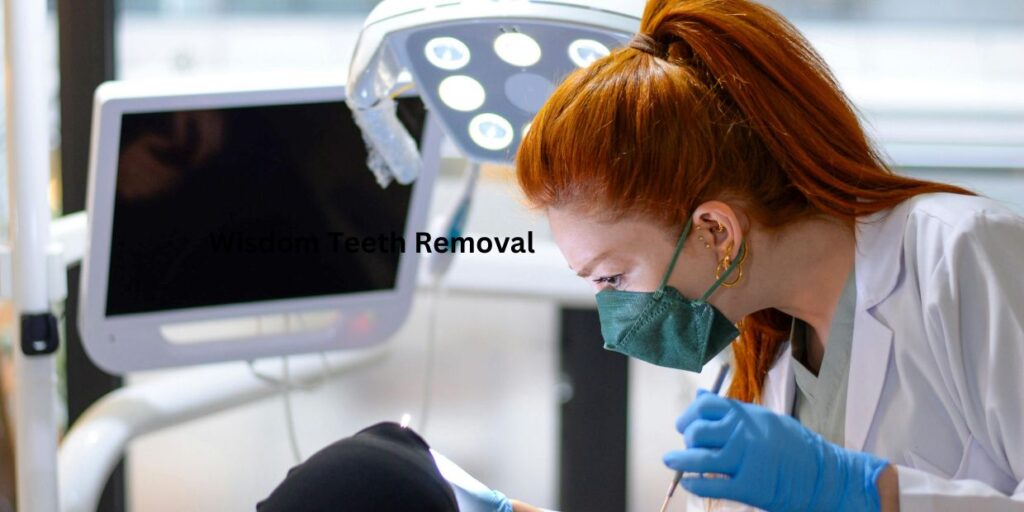Wisdom teeth removal is a common dental procedure that many undergo during their late teens or early twenties. It is often a straightforward process but the mere thought of having it done without anesthesia can send shivers down anyone is spine. Let us explore why anesthesia is a critical component of this dental surgery and what could happen without it.

Understanding Wisdom Teeth Removal
Wisdom teeth or third molars are the last set of teeth to emerge usually between the ages of 17 and 25. Often there isn’t enough room in the mouth for these teeth to grow properly leading to pain infection and other dental issues. Removal of wisdom teeth is a preventive measure to avoid such complications.
The Necessity of Wisdom Teeth Removal
Wisdom teeth are the final set of molars that emerge in late adolescence is can often lead to dental complications. Their removal is a common procedure recommended by dentists to prevent potential issues such as overcrowding misalignment and impaction. This preventive measure is crucial for maintaining oral health and avoiding future discomfort or damage to adjacent teeth.
The Procedure of Wisdom Teeth Extraction
The extraction process involves a dental surgeon making incisions in the gum to remove the troublesome teeth. Depending on the complexity it can be performed under local or general anesthesia. Post-operative care is essential to ensure proper healing with guidelines including rest is limited diet and medication to manage pain and prevent infection.
The Impact of Wisdom Teeth Removal on Oral Health
Removing wisdom teeth can have a positive impact on one is oral health. It eliminates the risk of overcrowding and impaction which can cause pain and lead to more serious dental issues. The procedure also helps to maintain the alignment of existing teeth and ensures a healthier mouth in the long term.
The Role of Anesthesia in Dental Surgery
Anesthesia in dental surgery serves a dual purpose it alleviates pain and eases anxiety. There are different types of anesthesia used in wisdom teeth removal
- Local Anesthesia Numbs the area around the wisdom teeth allowing the patient to stay awake without feeling pain.
- General Anesthesia Renders the patient unconscious suitable for more complex extractions or for those with dental anxiety.
- Sedation Helps relax the patient reducing anxiety while still allowing them to be awake and responsive.
The Risks of Skipping Anesthesia
Attempting wisdom teeth removal without any form of anesthesia would not only be excruciatingly painful but also incredibly traumatic. The pain could be so intense that it might cause shock or other severe reactions. Moreover the stress and anxiety associated with the pain could lead to a heightened risk of complications during the procedure.
The Perils of Forgoing Anesthesia
Anesthesia is a cornerstone of modern surgery providing pain relief and comfort during procedures. Skipping anesthesia can lead to severe pain heightened stress responses and an increased risk of complications during surgery. Without anesthesia patients would experience the full intensity of surgical interventions which could lead to traumatic stress and even shock potentially endangering their lives.
The Consequences of Pain and Anxiety
The absence of anesthesia not only subjects the patient to extreme pain but also triggers significant anxiety and fear. This heightened emotional state can adversely affect the outcome of the surgery as stress hormones like cortisol and adrenaline can lead to increased blood pressure heart rate and the risk of bleeding. Moreover the psychological impact of undergoing surgery without anesthesia can have long-lasting effects including post-traumatic stress disorder (PTSD).
Ensuring Safety and Comfort in Surgery
Ultimately is the use of anesthesia is a critical aspect of ensuring patient safety and comfort during surgical procedures. It allows for a controlled environment where the patient is pain and anxiety are managed leading to better surgical outcomes and a smoother recovery process. The risks associated with skipping anesthesia far outweigh any potential benefits making it an indispensable part of surgical care.
The Verdict
While the idea of wisdom teeth removal without anesthesia might intrigue some as a test of endurance it is an unnecessary and dangerous risk. Modern dentistry has made significant advances in ensuring that dental procedures are as pain-free as possible. Skipping anesthesia is not only bad it is potentially hazardous to both mental and physical health.
conclusion
wisdom teeth removal without anesthesia is a scenario best left untested. The availability of safe and effective anesthesia options makes the procedure bearable and prevents the myriad of risks associated with unmanaged pain and anxiety. Always consult with a dental professional to understand the best anesthesia option for your situation.
Also Read This: zxtech
